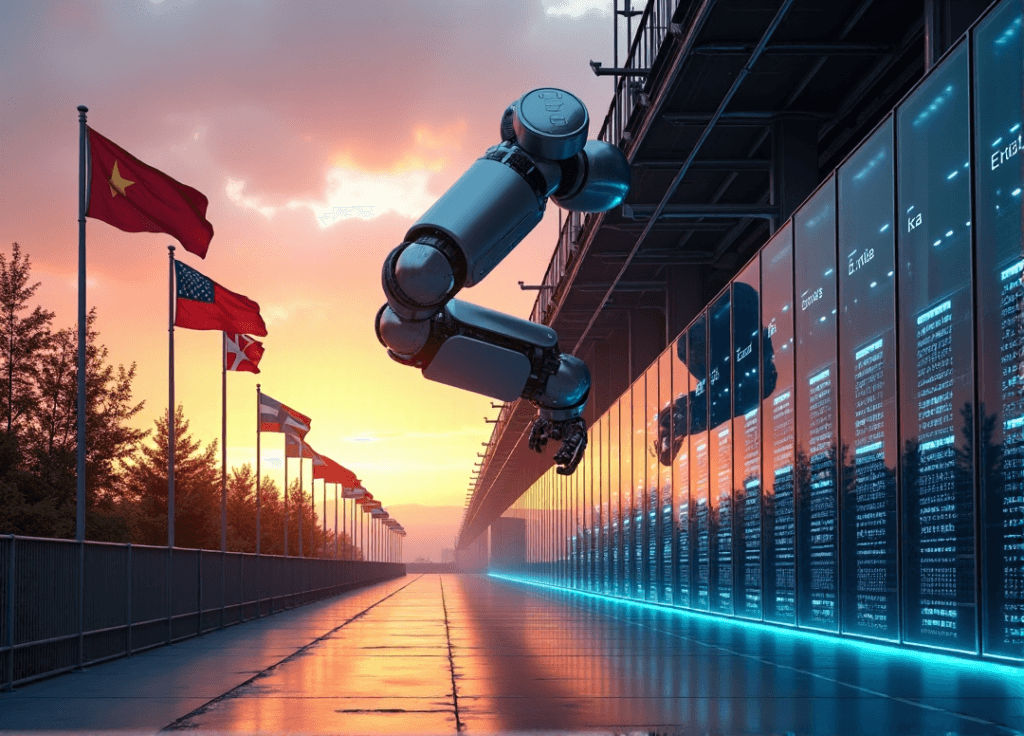Unlocking Innovation: The Future of Industries Through AI Automation Excellence
Will AI Automation Skills Replace Human Labor by 2030, or Will We Find a Harmonious Balance? As industries continue to evolve with AI automation excellence, it’s essential to develop the right skills to stay ahead of the curve. In this article, we’ll delve into the future of work and explore how mastering AI Automation Skills can unlock innovation in various sectors.
The Rise of AI Automation
Artificial intelligence (AI) has been transforming industries for decades, but recent advancements have accelerated its adoption at an unprecedented rate. From self-driving cars to predictive maintenance, AI-powered systems are increasingly taking over tasks that were once performed by humans.
The impact of AI automation on the job market is a topic of much debate. Some predict that AI will replace human labor entirely, while others believe it will create new opportunities for workers to focus on higher-value tasks.
Benefits of AI Automation
- Increased Efficiency**: Automating routine tasks allows businesses to streamline their operations and reduce costs.
- Improved Accuracy**: AI systems can perform complex calculations and tasks with greater precision than humans, reducing errors and improving overall quality.
- Enhanced Customer Experience**: By automating customer-facing tasks, businesses can provide faster and more personalized service to their customers.
The Skills Gap: A Barrier to AI Adoption
Despite the many benefits of AI automation, its adoption is often hindered by a lack of skilled workers. As AI-powered systems become increasingly sophisticated, the need for experts in areas like machine learning and data science grows.
A recent survey found that 75% of businesses believe that a shortage of skilled workers is the primary barrier to AI adoption. To address this gap, educators and training providers must develop programs that equip students with the skills needed to thrive in an automated world.
Acquiring AI Automation Skills
So how can individuals acquire the **AI Automation Skills** they need to stay ahead of the curve? Here are some steps you can take:
- Develop a Strong Foundation in Computer Science**: Understanding programming languages, data structures, and algorithms is essential for working with AI systems.
- Learn Machine Learning Capabilities**: Familiarize yourself with popular machine learning frameworks like TensorFlow or PyTorch to build and deploy AI models.
- Pursue Continuing Education**: Stay up-to-date with the latest developments in AI by attending conferences, workshops, and online courses.
Career Paths for AI Automation Professionals
As AI automation becomes increasingly prevalent, a range of career paths are emerging for professionals who possess the right skills. Here are some examples:
| Job Title | Description |
|---|---|
| AI Engineer**: Responsible for designing, developing, and deploying AI systems. | Familiarity with machine learning frameworks, programming languages, and data structures is essential for this role. |
| Data Scientist**: Analyzes complex data to identify trends and insights that inform business decisions. | Strong understanding of statistics, mathematics, and computer science is required for this position. |
| AI Consultant**: Helps businesses develop strategies for implementing AI solutions. | Familiarity with industry trends, market analysis, and business acumen is essential for success in this role. |
The Future of Work: A Harmonious Balance?**
As we look to the future, it’s clear that AI automation will continue to shape industries and jobs. However, rather than replacing human labor entirely, AI is likely to augment our capabilities and enable us to focus on higher-value tasks.
Conclusion
Mastery of **AI Automation Skills** is essential for unlocking innovation in various sectors. By developing a strong foundation in computer science, learning machine learning capabilities, and pursuing continuing education, individuals can acquire the skills they need to thrive in an increasingly automated world.
Additional Sources of Information
If you’re interested in learning more about AI automation and its impact on industries, here are some reputable sources:
- Gartner Research**: “The Future of Work: How AI Will Change the Job Market” – A comprehensive report on the future of work and the role of AI.
- Harvard Business Review**: “Why AI Won’t Replace Humans (Yet)” – An article exploring the limitations of AI and its potential to augment human capabilities.
- Coursera**: “Machine Learning” – A popular online course on machine learning from Stanford University, taught by Andrew Ng.
Explore more in our category page or visit our homepage.
